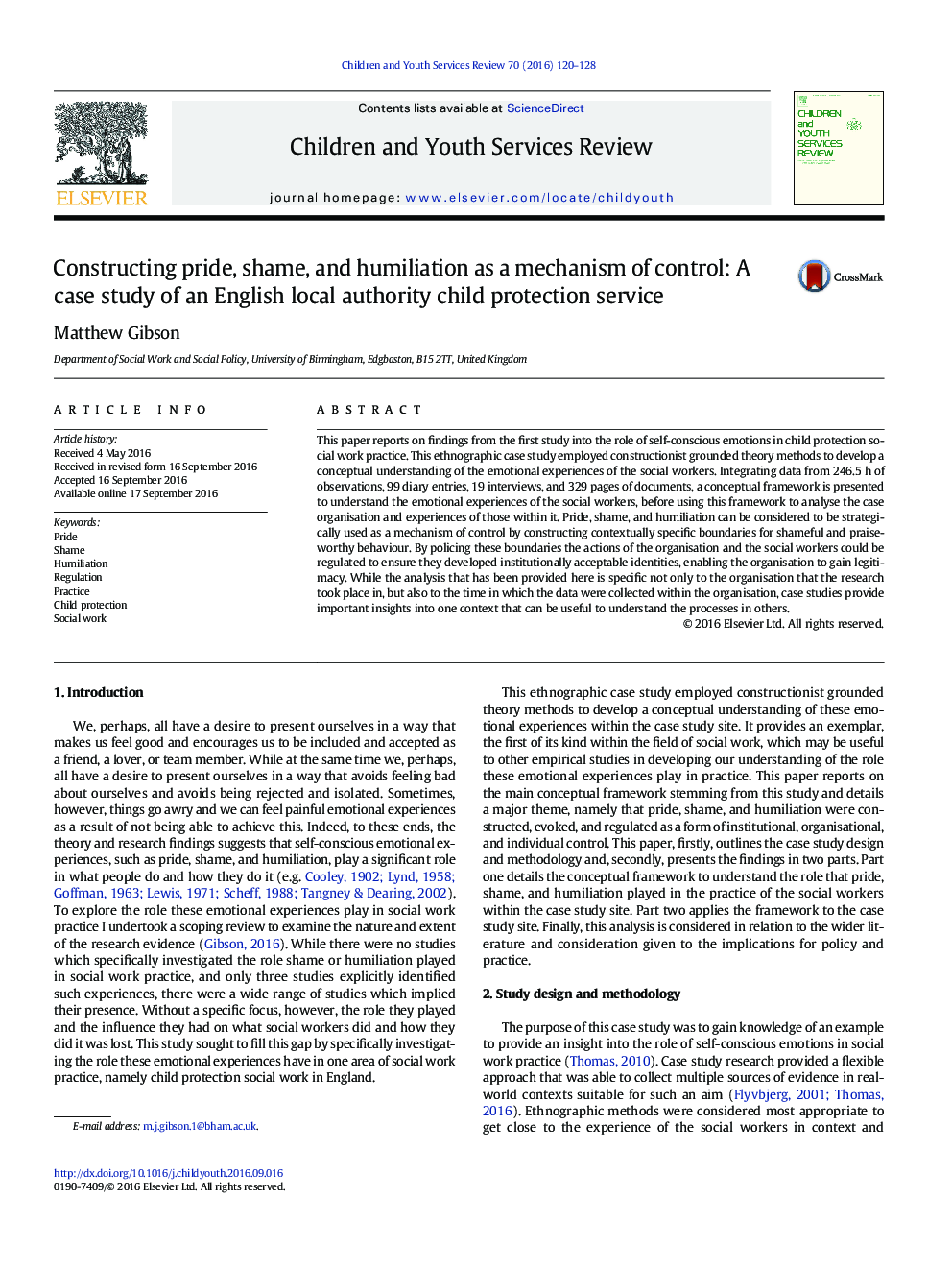| Article ID | Journal | Published Year | Pages | File Type |
|---|---|---|---|---|
| 4936627 | Children and Youth Services Review | 2016 | 9 Pages |
Abstract
This paper reports on findings from the first study into the role of self-conscious emotions in child protection social work practice. This ethnographic case study employed constructionist grounded theory methods to develop a conceptual understanding of the emotional experiences of the social workers. Integrating data from 246.5Â h of observations, 99 diary entries, 19 interviews, and 329 pages of documents, a conceptual framework is presented to understand the emotional experiences of the social workers, before using this framework to analyse the case organisation and experiences of those within it. Pride, shame, and humiliation can be considered to be strategically used as a mechanism of control by constructing contextually specific boundaries for shameful and praiseworthy behaviour. By policing these boundaries the actions of the organisation and the social workers could be regulated to ensure they developed institutionally acceptable identities, enabling the organisation to gain legitimacy. While the analysis that has been provided here is specific not only to the organisation that the research took place in, but also to the time in which the data were collected within the organisation, case studies provide important insights into one context that can be useful to understand the processes in others.
Related Topics
Health Sciences
Medicine and Dentistry
Perinatology, Pediatrics and Child Health
Authors
Matthew Gibson,
